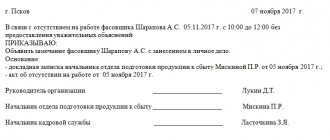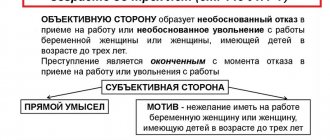Today, knowledge in the field of jurisprudence is very important not only for specialized specialists, but also for ordinary citizens: from an employer to an ordinary ordinary employee in an enterprise. The information listed below will help clarify many points in the field of sanitary standards and requirements.
Below, I, a person who has studied various sanitary offenses for quite a long time, described important information that will help clarify many points in the field of sanitary and epidemiological standards and requirements.
What is meant by sanitary legislation and who is obliged to comply with it?
Sanitary legislation is the entire set of laws, orders, regulations aimed at ensuring and maintaining the sanitary and epidemiological well-being of the population.
It covers a variety of areas of people’s lives:
- healthcare;
- education;
- production and industry;
- trade;
- provision of services to the population;
- office work, etc.
The basis of sanitary legislation is the Law “On the Sanitary and Epidemiological Welfare of the Population” No. 52-FZ (hereinafter referred to as Law No. 52-FZ). In addition, in almost every industry and area there are mandatory sanitary norms and rules, hygienic standards, as well as methodological instructions of the Chief State Sanitary Doctor and recommendations of Rospotrebnadzor. For example:
- SP 1.1.1058-01. Organization and conduct of production control over compliance with Sanitary rules and implementation of sanitary and anti-epidemic (preventive) measures.;
- SanPiN 2.2.1/2.1.1.1200-03 “Sanitary protection zones and sanitary classification of enterprises, structures and other objects (valid until 01/01/2022, then will be replaced by SanPiN 2.1.3684-21, approved 01/28/2021);
- SP 3.1/2.4.3598-20 “Sanitary and epidemiological requirements for the structure, content and organization of work of educational organizations and other social infrastructure facilities for children and youth in the context of the spread of a new coronavirus infection (COVID-19)”
And these are just a few examples.
It should also be noted that Rospotrebnadzor, the Chief State Sanitary Doctor and other government bodies, in addition to the current sanitary rules and regulations, can adopt resolutions and issue instructions depending on the current sanitary and epidemiological situation.
Even more information on the topic (and a convenient search system that allows you to find all sanitary rules) is in the ConsultantPlus system. If you don't have access yet, get a free 2-day trial
General procedure for bringing to justice
The main functions of monitoring and control in the field of compliance with sanitary standards are established for employees of Rospotrebnadzor. It is these specialists who have the right to order various inspections and similar activities.
Attention! Both scheduled and unscheduled inspection activities can be organized here.
The latter option is assigned when citizens receive complaints regarding environmental pollution. If the activity does not raise any questions, then a scheduled inspection can be scheduled no more than once every two years.
The duration of an unscheduled inspection can be no more than a month, and a special protocol is drawn up based on the results of the event.
The document must record all points regarding the offenses committed or their absence. Already on the basis of this protocol, the perpetrators or officials will be held accountable, taking into account the gravity of the offense.
Who bears what responsibility for violating sanitary legislation?
In accordance with Art. 55 of Law No. 52-FZ establishes administrative, criminal and disciplinary liability for violation of sanitary legislation.
A significant part of sanitary regulations is addressed to employers, because their responsibilities include organizing a safe workplace for employees. By violating sanitary rules, the employer bears administrative liability (Chapter 6 of the Code of Administrative Offenses of the Russian Federation), and if there are consequences in the form of death or mass morbidity, then criminal liability (Article 236 of the Criminal Code of the Russian Federation).
However, it is obvious that compliance with sanitary standards and rules depends not only on the employer, but also in many ways directly on the workers themselves. For example, the management of an enterprise with dangerous and harmful working conditions is obliged to provide workers with special clothing and other personal protective equipment (Article 221 of the Labor Code of the Russian Federation).
However, an employee may neglect the obligation to wear protective clothing, despite its availability. In this case, the employer bears the risk of administrative liability. What should you do with the employee in this case? Does the manager have the right to bring him to disciplinary liability? Let's figure it out further.
Types of penalties
The legislation of the Russian Federation provides for disciplinary action in the form of a reprimand, reprimand or dismissal.
- Note . Imposed for committing a minor offense that did not cause serious damage to the company. It is considered the lightest form of punishment.
- Reprimand . Announced if the employee’s actions caused significant damage to the company. There is an unspoken rule that the third reprimand serves as grounds for dismissal with the wording “for repeated violation of labor discipline.”
- Dismissal . In the event of a more serious violation in the workplace, the employer has the right to dismiss the employee, making a note in the employee’s documents.
In practice it looks like this. Masha Ivanova was 10 minutes late for work without a good reason. For this she receives a reprimand. If she is 2 hours late, she will be reprimanded. And if she was not at work for 3 or more hours, then this is considered absenteeism, and the director has every right to fire her for gross violation of labor discipline.
The law stipulates that the types of disciplinary sanctions applied to an employee in accordance with the Labor Code of the Labor Code of the Russian Federation and measures to prevent them in the future can be expanded on the basis of internal orders . This is done in the case when other by-laws allow such an expansion. For example, a contract soldier is considered a hired employee, and he can be arrested for up to 7 days.
The director of a commercial enterprise has the right to submit to the founders the right to punish the employee in other ways, for example, transfer to night duty, a severe reprimand.
Is it possible to bring disciplinary action for violating sanitary norms and rules?
Disciplinary liability is expressed in the fact that for committing disciplinary offenses, the employer has the right to impose disciplinary sanctions on employees (Article 192 of the Labor Code of the Russian Federation). A disciplinary offense is considered to be the failure or improper performance by an employee of his assigned job duties. Such failure must necessarily be culpable.
If we talk about sanitary norms and rules, then according to Art. 214 of the Labor Code of the Russian Federation, an employee is obliged to:
- comply with labor protection requirements;
- correctly use protective equipment, such as protective clothing;
- immediately notify of any manifestations of ill health and accidents;
- undergo medical examinations in a timely manner;
- undergo training in safe work methods and techniques.
The employee’s specific job responsibilities, including compliance with sanitary standards and rules, must be recorded in the organization’s internal labor regulations, employment contract, job description, and orders of the manager. Accordingly, an employee can be brought to disciplinary liability for violations of sanitary norms and rules if he committed actions prohibited by the job description or did not perform the actions required of him.
Thus, it is possible to bring an employee to disciplinary liability only if the violated rule of conduct is specified in a local regulation, job description or employment contract. For example, if this employee is responsible for the availability of disinfectants, and Rospotrebnadzor fines the organization for their absence, the employee can be punished through disciplinary action.
In this case, the employer does not have the right to invent types of penalties, but must adhere to the list established by the Labor Code of the Russian Federation (Article 192 of the Labor Code of the Russian Federation):
- comment;
- rebuke;
- dismissal for some reason.
For some categories of employees, additional types of penalties may be provided.
The penalty imposed by the employer must be proportionate to the offense committed. For example, dismissal will be excessive in the event of a one-time failure by an employee to fulfill the duty to disinfect work surfaces in a store, but a reprimand will be just right.
Note! Fines cannot be used as a disciplinary sanction.
Thus, when answering the question whether an employer can impose a disciplinary sanction on an employee for violations of sanitary legislation, it is necessary to first find out whether compliance with a specific rule is among the job responsibilities of this employee, whether it is spelled out in his job description or local regulations.
Recently, a new recommendation that has extended to almost all areas of activity has been the wearing of masks and gloves by workers. In some regions this is not a recommendation, but a requirement. For example, in Moscow, by mayoral decree No. 12-UM dated March 5, 2020, citizens were required to use personal protective equipment, taking into account the specifics established by the employer (clause 1.4 of Appendix 6 to decree No. 12-UM).
The mask regime at the enterprise is organized by order of management by issuing an order, with which all employees must be familiarized and signed. In this case, refusal to wear a mask should be regarded as a disciplinary offense.
Note! Violation of sanitary norms and rules is not grounds for removing an employee from performing duties, since this is not provided for in Art. 76 Labor Code of the Russian Federation.
Why can you get fired?
There are a number of reasons that would allow a manager to fire an employee. They are indicated in Art. 81 Labor Code of the Russian Federation . The essence of termination of an employment contract at the initiative of the employer due to an employee committing an offense comes down to the following:
- The employee does not have enough qualifications to do his job well.
- This is not the first time he has committed another offense. The Labor Code contains the word “repeatedly”, which means that 2 violations are already enough.
- For gross violation of discipline. Truancy, drunkenness, immoral behavior will be sufficient grounds for punishment.
Theft threatens with dismissal . And there is a small conflict here. If the employer contacts law enforcement agencies, the employee is prosecuted and found guilty, then the court will punish him. He is punished again, through dismissal. However, it is prohibited to impose sanctions twice for the same offense.
Disciplinary liability as prescribed by Rospotrebnadzor
Issues of disciplinary liability fall within the competence of the employer. Rospotrebnadzor issues orders to the entity that violated the joint venture - organizations, individual entrepreneurs, officials. The presence of this requirement and the imposition of administrative punishment do not prevent the guilty employee from being brought to administrative responsibility, but also does not inevitably entail such responsibility.
The application of disciplinary liability is the employer's choice.
*** So, the employer has the right to impose a disciplinary sanction on the employee for violating sanitary norms and rules, provided that these norms and rules are spelled out in the employment contract or local regulations, and the employee is familiar with them by signature.
You can find more complete information on the topic in ConsultantPlus. Free trial access to the system for 2 days.
How to protect yourself from the arbitrariness of your boss
If an employee is discovered that his rights have been violated, he can protect them with the help of the authorities; such a possibility is provided for in Art. 195 Labor Code of the Russian Federation . For this purpose, there is a labor inspectorate and the prosecutor's office , which can initiate consideration of an administrative case.
The labor inspectorate and the prosecutor's office do not accept anonymous statements, so you must understand that protecting your rights in this way threatens to result in tense relations with management.
The decision on the type and severity of the punishment is made by the owner of the enterprise based on the inspection carried out. In this case, the owner is obliged to report on the measures taken.
If, as a result of the investigation, violations are revealed, then sanctions will be applied to the director, his deputies or the head of a structural unit, up to and including dismissal.
Disciplinary action under the Labor Code of the Labor Code of the Russian Federation means that this is a competition between a businessman and his hired employee, its goal is to protect the business from a careless employee of any rank, from a cleaner to a general director. Creating a tense atmosphere for the team threatens with negative consequences, so the culprit must be punished.
Mitigating circumstances for sanitary offenses
The application of any punishment requires a preliminary hearing to determine the degree of guilt, the availability of evidence, mitigating and aggravating circumstances.
Circumstances mitigating the degree of punishment for committing violations in the field of sanitary and epidemiological law include:
- repentance of the person who committed the violations in his actions and recognition of them as illegal;
- independent and disinterested compensation to victims for the damage caused, creation of conditions for further prevention of such actions and elimination of the reasons that were the prerequisite for the violation;
- committing a violation under the influence of strong emotions, frustration, dissatisfaction with family life or other mental problems;
- if the violation was committed by a pregnant woman or the mother of a child under one year of age, as well as a minor citizen of any gender;
- independent and voluntary reporting to law enforcement agencies about the offense committed and further active cooperation with control authorities to eliminate the consequences of the violation.
Conditions for applying administrative punishment
Administrative punishment is the most common type of liability for violations in the field of sanitary control. Liability is determined by Article No. 6 of the Code of Administrative Offenses of the Russian Federation and applies in the following cases:
- an organization or an individual violated the sanitary standards in force at the time of the offense or failed to take measures to prevent such violations;
- the fact of non-compliance with established sanitary standards for the use and operation of residential and non-residential premises and buildings, public buildings, and passenger transport was proven;
- facts of significant violations were revealed in the procedure for providing (supplying and supplying) drinking water to the population or an individual enterprise;
- shortcomings were identified in the organization and implementation of measures for the destruction of industrial waste (disposal of food waste), etc.;
- the conditions for organizing the supply, delivery, storage and issuance (sale) of food products to the population have not been met or have been fulfilled in violation.
These are only generalized conditions for the application of administrative punishment; each of the listed points has many subparagraphs, including detailed requirements for each section.
For example, when organizing catering, not only the order of storage, preparation and delivery of food is taken into account, but also compliance with the requirements for the building itself (location, foundation, floor, organization of the septic tank, etc.).







